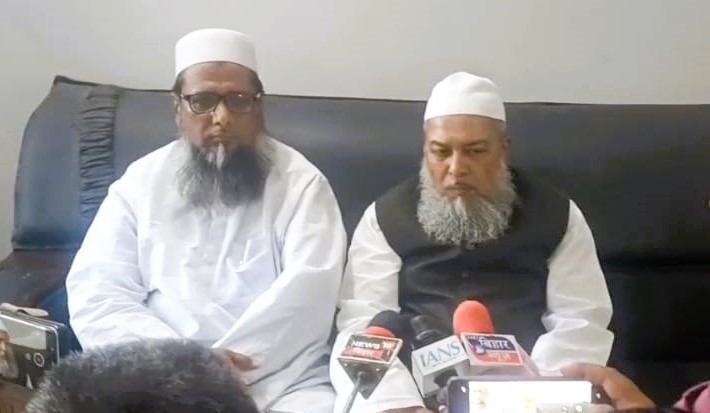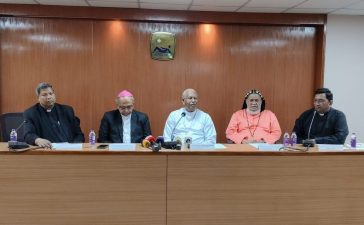Imarat Shariah Files Supreme Court Plea Against Waqf Law
Religious body cites violations of constitutional rights; vows to continue legal and political efforts to protect waqf properties
Imarat Shariah of Bihar, Odisha, and Jharkhand has filed a petition in the Supreme Court challenging the Waqf Amendment Act 2025, arguing that the new law infringes on fundamental constitutional rights, including religious freedom and minority protections.
Supreme Court Petition Against Waqf Amendment Act
In a significant legal move, Imarat Shariah, a prominent religious and socio-legal institution representing Muslims in Bihar, Odisha, and Jharkhand, filed a writ petition in the Supreme Court on April 15, 2025, opposing the Waqf Amendment Act 2025. The organization claims that the revised law is unconstitutional and discriminatory in nature.
According to the petition, the new amendments contravene several provisions of the Indian Constitution, including Article 14 (equality before the law), Article 15 (prohibition of discrimination), Article 25 (freedom of religion), Article 26 (freedom to manage religious affairs), and Article 29 (protection of minority rights). It further argues that the changes violate Article 300A, which safeguards the right to property.
Legal and Political Mobilization
Maulana Shibli Qasmi, Secretary and Administrator of Imarat Shariah, issued a press statement detailing the organization’s ongoing efforts to protect waqf assets and religious institutions.
“Under the leadership of Hazrat Ameer-e-Shariat Maulana Anisur Rahman Qasmi, we are not only fighting for the protection of waqf but also for the security and integrity of our religious institutions,” said Maulana Shibli. “Maulana Anisur Rahman has been actively engaged in this cause from the very beginning. He was the first to organize a Waqf Conference in Patna and led a delegation to present a memorandum to Chief Minister Nitish Kumar and other political leaders.”
He added that when the amendment bill was first introduced in Parliament, legal experts were immediately consulted and a comprehensive review of the legislation was undertaken. “Now, with full legal preparation, Imarat Shariah has challenged the Act in the Supreme Court,” he stated.
The decision to pursue legal action was formally approved in a meeting of the Board of Trustees, where it was unanimously resolved that the Act should be contested at the highest judicial level.
Standing Firm on Minority Rights
In his statement, Maulana Shibli emphasized the broader mission of Imarat Shariah: “Alhamdulillah, under the stewardship of Maulana Anisur Rahman Qasmi, Imarat Shariah continues to stand firmly for the protection of waqf and the rights of Muslims. We are hopeful that the Supreme Court will deliver a positive verdict.”
Broader Implications
The challenge by Imarat Shariah adds to a growing wave of opposition to the Waqf Amendment Act 2025, with several other organizations and political groups also filing petitions. Critics argue that the amendments dilute community control over waqf properties and potentially open the door to government overreach and misuse.
Observers believe that the case could set a significant precedent regarding the rights of religious minorities to manage their internal affairs without undue state interference.
As the legal battle unfolds, all eyes will be on the Supreme Court, where the interpretation of constitutional safeguards for minorities will once again come under scrutiny.
🔹 Statements & Quotes
Maulana Anisur Rahman Qasmi, Ameer-e-Shariat:
“This is not just about land or property—it’s about preserving the religious and constitutional rights of a community.”
Maulana Shibli Qasmi, Secretary of Imarat Shariah:
“We have approached the Supreme Court not out of defiance, but to protect what the Constitution guarantees—equality, religious freedom, and minority rights.”
Imarat Shariah (official statement):
“The Waqf Amendment Act 2025 poses a serious threat to the autonomy of religious institutions and violates the very spirit of the Constitution.”
#WaqfAct2025 #MinorityRights #ImaratShariah #ConstitutionalRights #ReligiousFreedom #SupremeCourt #ProtectWaqf #LegalJustice #EqualityForAll
![]()











